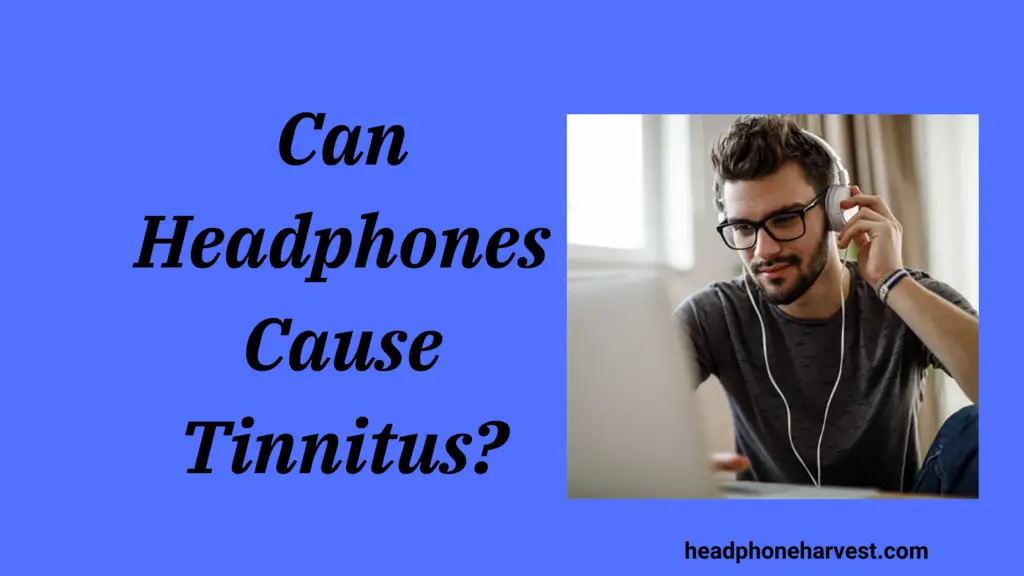Discover the truth behind the question “Can headphones cause tinnitus?” Learn how headphone usage may impact ear health and find preventive measures to protect against this common condition.
Yes, prolonged and excessive headphone use, especially at high volumes, can potentially lead to tinnitus. It’s essential to use headphones responsibly and take preventive measures to protect your ear health.
In this comprehensive guide, we delve into the question: Can headphones cause tinnitus? Tinnitus, often described as a ringing or buzzing sound in the ears, can be a concerning issue for many individuals. With the increasing prevalence of headphone use in today’s digital age, it’s essential to explore the potential link between headphones and tinnitus to understand how to prevent this condition and promote ear health.
You Can Read more about the Product Review: Uliptz Wireless Bluetooth Headphones Review
Understanding Tinnitus
Tinnitus is a common condition characterized by the perception of sound in the ears when no external sound source is present. It can manifest as ringing, buzzing, hissing, or clicking noises and may vary in intensity and duration. While tinnitus itself is not a disease, it can be a symptom of an underlying issue such as hearing loss, exposure to loud noises, or ear injuries.
The Role of Headphones
Headphones, particularly those used at high volumes for extended periods, have been associated with an increased risk of tinnitus and hearing damage. Prolonged exposure to loud sounds can damage the delicate hair cells in the inner ear, leading to hearing loss and tinnitus. Additionally, the use of in-ear headphones, which sit closer to the eardrum, may pose a higher risk of tinnitus compared to over-ear headphones.
Can Headphones Cause Tinnitus?
Yes, prolonged and excessive headphone use, especially at high volumes, can potentially lead to tinnitus. It’s essential to use headphones responsibly and take preventive measures to protect your ear health.
Preventive Measures
To mitigate the risk of tinnitus associated with headphone use, consider the following preventive measures:
1. Volume Control
Adjust the volume of your headphones to a safe level, keeping it below 60% of the maximum volume. Avoid listening to music at high volumes for prolonged periods, especially in noisy environments where you may feel the need to increase the volume to block out external sounds.
2. Take Breaks
Take regular breaks from headphone use to give your ears a rest. Limit continuous listening sessions to no more than one hour at a time, allowing your ears time to recover from exposure to sound.
3. Use Noise-Canceling Headphones
Consider investing in noise-canceling headphones that block out external noise, allowing you to listen to music at lower volumes without the need to increase the volume to drown out background sounds.
4. Choose Over-Ear Headphones
Opt for over-ear headphones instead of in-ear or on-ear models, as they provide better sound isolation and reduce the risk of direct sound exposure to the eardrum.
5. Monitor Symptoms
Be mindful of any signs of tinnitus such as ringing or buzzing sounds in your ears. If you experience persistent tinnitus or hearing loss, consult a healthcare professional for a comprehensive evaluation and personalized recommendations.
Can wearing AirPods cause tinnitus?
Yes, wearing AirPods, similar to other types of headphones, can contribute to tinnitus if used irresponsibly. Listening to music or audio at high volumes for prolonged periods can damage the delicate structures in the inner ear, leading to symptoms such as ringing or buzzing sensations known as tinnitus.
To minimize the risk, it’s important to keep the volume at a moderate level and take regular breaks from headphone use to allow your ears to rest and recover. Additionally, using noise-canceling features and opting for over-ear headphones instead of in-ear models can help reduce the potential impact on your hearing health.
Do noise-canceling headphones help tinnitus?
Noise-canceling headphones can provide relief for some individuals with tinnitus by masking the ringing or buzzing sounds with white noise or other soothing sounds. However, it’s essential to use them at a safe volume and not rely on them as a permanent solution.
Managing tinnitus often requires a comprehensive approach, including sound therapy, lifestyle changes, and professional guidance from healthcare providers specializing in audiology or tinnitus management.
Is tinnitus permanent?
Tinnitus can be temporary or permanent, depending on its underlying cause. In some cases, tinnitus may resolve on its own, especially if it is caused by temporary factors such as exposure to loud noise or earwax buildup.
However, for many individuals, tinnitus is a chronic condition that persists over time. It may be associated with age-related hearing loss, inner ear damage, or other medical conditions. While there is currently no cure for tinnitus, various treatments and management strategies can help individuals cope with the symptoms and improve their quality of life.
Conclusion: Can Headphones Cause Tinnitus
In Conclusion: Can Headphones Cause Tinnitus? While headphones can enhance our listening experience and provide entertainment, it’s crucial to use them responsibly to protect our hearing health. By following preventive measures such as controlling the volume, taking breaks, and choosing the right type of headphones, we can minimize the risk of tinnitus and promote overall ear health.
